Henry H. Houston
Henry Howard Houston (October 1820 – June 21, 1895) was a leading Philadelphia businessman and philanthropist.
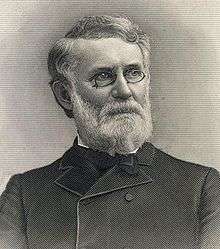
Career
Houston led the Pennsylvania Railroad's freight division after the Civil War, and he was in charge of the Philadelphia, Germantown and Chestnut Hill Railroad (now SEPTA's Regional Rail Chestnut Hill West Line) which was built in the 1880s to link downtown Philadelphia with the wealthy and growing suburbs to the northwest.
He was the developer of "Wissahickon Heights," an exclusive community in western Chestnut Hill, and built the original structures used by Chestnut Hill Academy and the Philadelphia Cricket Club. He also served as a trustee of the University of Pennsylvania and was part of the founding class of the Phi Kappa Psi fraternity (Pennsylvania Iota chapter) along with Edgar Fahs Smith and Otis H. Kendall.
Personal life
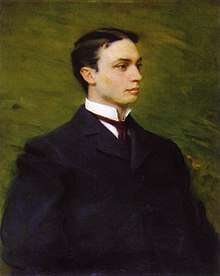
Houston married Sallie Sherrerd (nee Bonnell), and they had four children, Sallie Bonnell Houston, Henry Jr., Samuel Frederic Houston, and Gertrude Houston Woodward.[1] Houston and his wife donated $100,000 to build Houston Hall, University of Pennsylvania, named as a memorial to their son, Henry Howard Houston, Jr. (University of Pennsylvania class of 1878), who had died in Rome within a year of his graduation.
Houston attended St. Peter's Church in the Germantown neighborhood of Philadelphia and was a property developer in that section of the city.
Legacy
Houston is the namesake of the Henry H. Houston Elementary School in Mount Airy, Philadelphia, Pennsylvania.
Houston's Chestnut Hill mansion, Druim Moir (1886), still exists, having been converted to condominium use. Springside School occupies part of the former estate's grounds.
Houston's 1895 will was still contested until 1964, by that time the property he left in trust was worth approximately $145 million, leading to a decision by the Pennsylvania Supreme Court[2] The case is often taught in law school in property and probate law courses as it deals with the interpretation of future interests created in favor of Houston's grandchildren.[3]
- Gateway to Druim Moir.
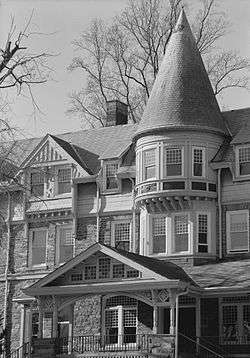 Wissahickon Inn (now Chestnut Hill Academy).
Wissahickon Inn (now Chestnut Hill Academy).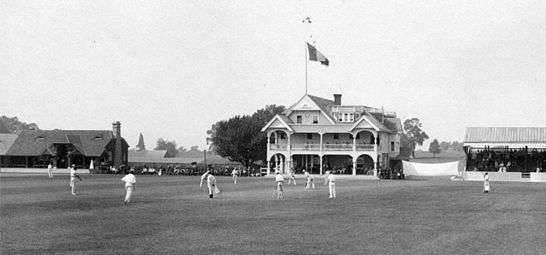 Philadelphia Cricket Club, original building, burned 1909.
Philadelphia Cricket Club, original building, burned 1909.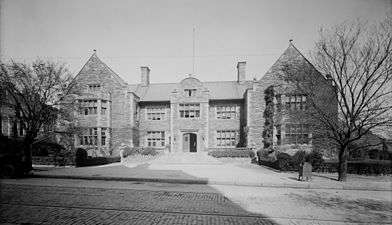
References
- "Guide, Henry Howard Houston Estate Papers, University of Pennsylvania University Archives". Archived from the original on 12 February 2017. Retrieved 27 January 2017.
- In re Estate of Houston, 201 A.2d 592 (Pa. 1964).
- Sheldon Kurtz et al., Cases and Materials on American Property Law (6th ed. 2012): 317-29.
External links
- Henry H. Houston at Find a Grave
- Henry H. Houston Elementary School (http://webgui.phila.k12.pa.us/schools/h/houston)